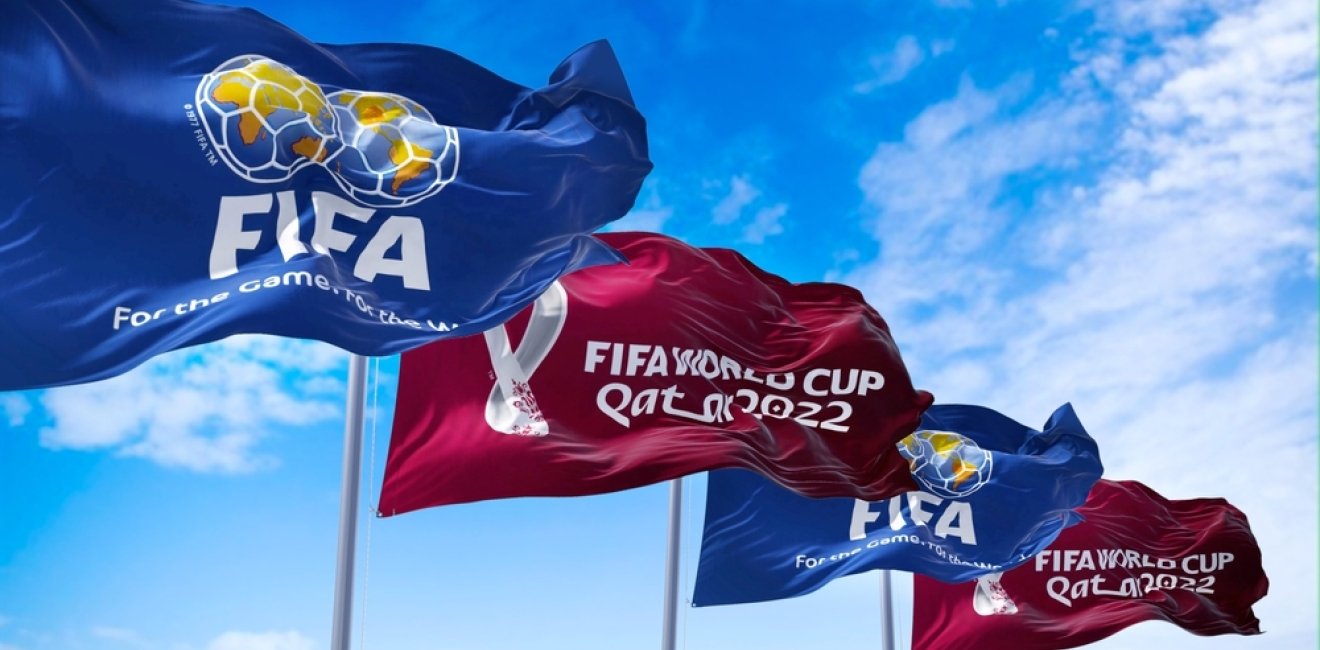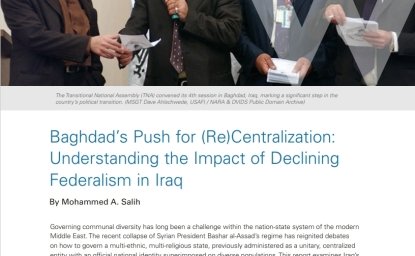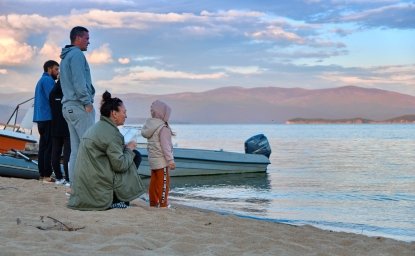Amid preparations for the 2022 FIFA World Cup, which kicked off on Sunday, Qatar heavily invested in various safety measures to safeguard against crime during the mega sporting event. For example, it collaborated with foreign governments, including France and Turkey, to deploy their militaries and security forces. The FBI is also working closely with FIFA to curb criminal threats and activities during the 64-game tournament. The urgency of these measures suggest that the risk of criminal activity is very high. While ensuring the safety of attendees is a top priority for the Qatari government, Qatar’s inhabitants wonder what exactly they are up against and how it will impact their day-to-day activities.
I conducted a brief survey to examine people’s perceptions of the $200 billion investment; more specifically, the survey aims to capture people’s concerns about safety and security during the World Cup and how they will mitigate risks on their own. It also aims to debunk some of the pervasive misconceptions of Qatar that have become more prevalent over recent years in the media.
The 198 survey respondents are citizens and residents aged 18 and above, with a significant number of them having witnessed rapid developments within the country since Qatar won the bid in 2010. The survey consisted of both Likert scale questions to measure quantitative sentiments and open-ended responses to shed light on the reasons for those sentiments. Qualitative comments were collected in an Excel spreadsheet and analyzed using affinity mapping to identify the most important themes or patterns.
Strong Support
Qatar is the first Middle Eastern country to host the FIFA World Cup, sparking unprecedented controversy and interest by millions of people worldwide. In Qatar, based on survey results, there is strong support for the country to host the World Cup at the societal level (on a five-point Likert scale, 33 percent selected ‘strongly approve,’ whereas only 5 percent chose ‘strongly disapprove’). In the open-ended response section, many supporters justified their position by citing national pride and arguing that the World Cup is an opportunity for Qatar to elevate its soft power as an Arab and Muslim country. One respondent said, “By hosting the world cup, we can shine a new light on the perspectives of people from around the world on how ethical, well-behaved, and upright our Muslim and Middle Eastern communities are.”
Interestingly, some supporters stated that the Western media's negative portrayal of Qatar in the run-up to the tournament actually made them more supportive of the decision to host the World Cup in Qatar. During the 51st hearing of the Shura Council in October, the emir Tamim bin Hamad Al Thani addressed the smear campaign to the elected members. He stated that it is filled with “fabrication and double standards” and is driven by ulterior motives. Recently, @HassanALANSARI3 tweeted a caricature by French newspaper Le Canard enchaîné, which depicts the Qatari soccer team as angry men with long, dark beards and weapons in the desert. Al Ansari’s tweet aroused fury on Qatari Twitter and was later covered by Al Jazeera and Middle East Eye.
[supporters] described hosting the World Cup as “an engine for change and greater development.”
In addition, some supporters claimed winning the bid to host the mega event has led to considerable improvement of Qatar’s infrastructure. They also expect positive economic returns after many years of hefty investments. “The investment in the stadium and the sport overall will open for us more chances of hosting sport events which will improve our economy,” said one respondent. Another described hosting the World Cup as “an engine for change and greater development.”
There were also some survey respondents who did not accept this argument however. Some skeptics commonly mentioned the word “burden” when describing the government’s budget and stated that the World Cup will not have the economic return others anticipate. This debate also exists among experts, where some feel enthusiastic about returns on investment in the years to come and others remain doubtful.
Safety and Security Concerns
Qatar is widely regarded as one of the safest countries in the world. During the World Cup, however, public safety is likely to be at risk. Hooliganism and vandalism inside and outside the stadiums are some of the common issues that are associated with soccer culture. Therefore, despite support, the majority of the respondents expressed some level of concern. To the question, ‘How concerned are you about your safety during the World Cup?’ Most, at 30 percent, answered ‘moderately concerned’ followed by 23 percent who chose ‘slightly concerned.’
Although Qatar has rigorously invested in safety and security operations, there has been no safety awareness campaigns or transparency on the anticipated crimes. In the Guide on the Security of Major Sporting Events report by the UN Office of Counter-Terrorism, openly communicating with public groups, including community residents, is of high importance and can improve security implementation mechanisms.
To gauge their anticipation, respondents were asked, ‘Which issues are you most and least concerned about?’ with the following choices: drug dealing, alcohol consumption, health hazards, property theft, vandalism, and terrorism. In the ‘most concerned’ category, the majority selected ‘property theft’ followed by ‘alcohol consumption.’ As for the least concerned category, respondents’ top choice was ‘terrorism.’ On the issue of property theft, one respondent commented, “I worry about my safety, the safety of my family, our belongings and our home as people from all over the world will enter Qatar.” Another respondent stated that some visitors will have ulterior motives: “Since the country is very known for its wealth, I worry that locals and their homes are targets for criminals.”
Moreover, on the issue of alcohol consumption, several Western news stories associated Qatar's strict alcohol regulations to the country's conservative and Muslim nature. However, 40 percent of the comments in the open-ended section associated drunkenness with potential crimes and violence, such as physical fights and vandalism. Additionally, a few respondents even emphasized the importance of safety awareness to inform people how to react in an emergency or dangerous situation. “I understand that the Qatari government is working closely with other countries to maintain safety and control crime, but what do I do when I come across a drunk person who might be violent or something of that nature? The authorities must communicate with us about these issues!”
Many community members however feel as though the laxity of the rules sacrifices the integrity of the culture.
In addition to comments on safety risks, 21 percent extended the survey’s notion of safety by expressing their fears about cultural threats. Given the conservative nature of Qatari society, many people are concerned that social customs will not be respected or tolerated. Following backlash from the international press, the Qatari government announced that it would relax its rules around uncustomary social practices in Qatar, such as public display of affection and public drunkenness. Many community members however feel as though the laxity of the rules sacrifices the integrity of the culture. A respondent proclaimed, “I worry about the influx of cultures and foreign practices and how they might influence our traditions and children.” Another said that, after the magnitude of criticism of Qatari culture and identity, “respecting our social norms is the bear minimum. We are not asking for much.”
Precautions and Beyond
In the final section of the survey, respondents were asked, ‘What precautions are you most and least likely to take during the World Cup?’ with the following options: installing security cameras, hiring security staff, traveling abroad, leaving your house when necessary, and avoiding crowded locations. The majority at 55 percent selected they will most likely ‘avoid crowded locations,’ which indicates that they will not be attending World Cup-related events and activities. However, choosing to avoid events may not be limited only to safety concerns.
We can consider some people’s decision to not attend World Cup events as an act of objection.
One respondent indicated that since many of the activities contradict religious and cultural beliefs, they will not be attending. Another respondent stated, “the desire to gain the approval of the West for economic and political gains has left nationals and the local population on the margin of all the decision-making when it comes to policies, procedures and overall environment during the World Cup.” Therefore, we can consider some people’s decision to not attend World Cup events as an act of objection. Furthermore, many of the events that will take place during the World Cup, such as concerts and music festivals, mainly target international audiences. While they do contradict cultural norms, they are part of Qatar’s investments in tourism and its efforts to improve its image diplomatically.
Overall, supporters of the 2022 World Cup in Qatar seem to consider it as an opportunity for an Arab and Muslim country to elevate itself on the global stage. However, the lack of government public communication about safety risks leaves many people questioning to what extent their personal safety may be at risk. As a result, some people have implemented certain safety measures to safeguard against high-risk instances and crime, such as public drunkenness and property theft.
In fact, many believe that the risks of being in crowded areas outweigh the benefits. One respondent expressed disappointment about their neighbor, a former ambassador, leaving Qatar a few months ago. "I wish he had waited until after the World Cup to leave. His security guard could have kept an eye on both his house and mine. Now I must stay at home instead.”
The views expressed in these articles are those of the author and do not reflect the official position of the Wilson Center.






